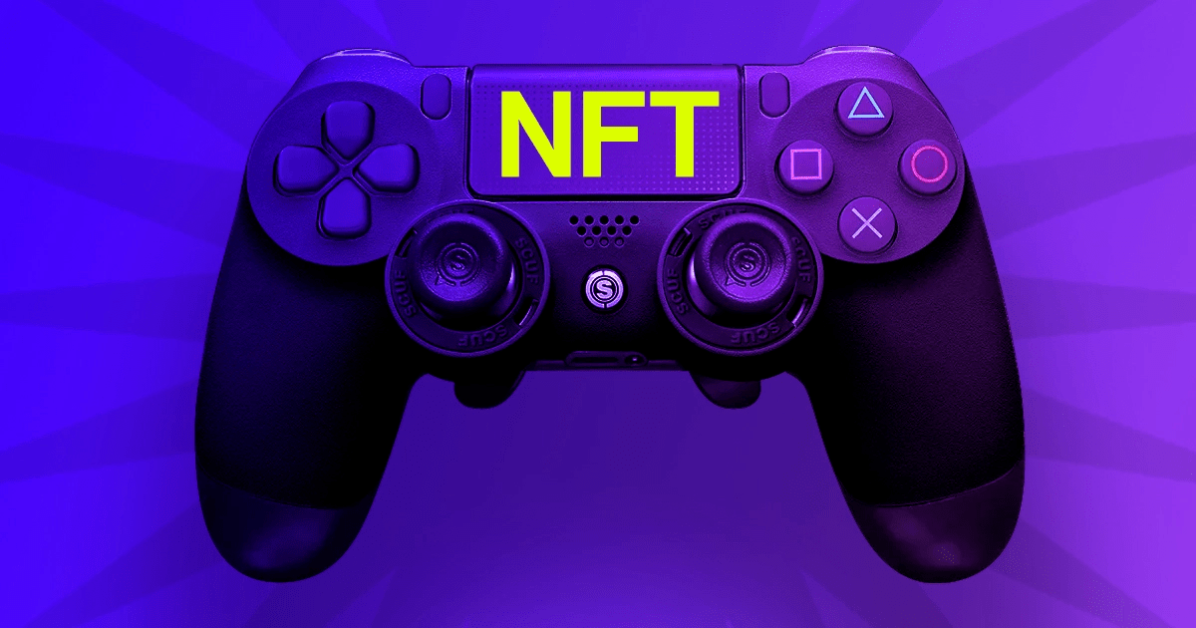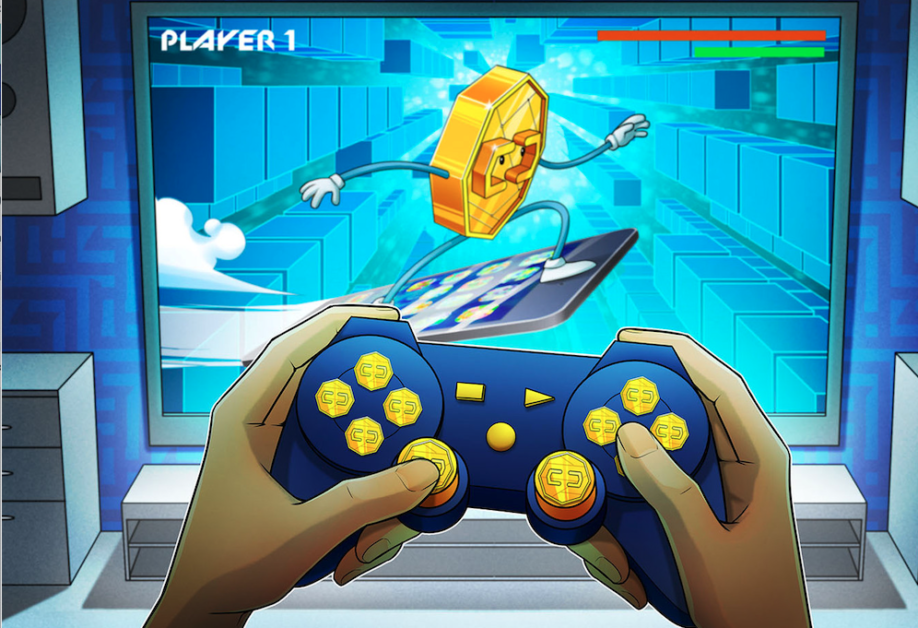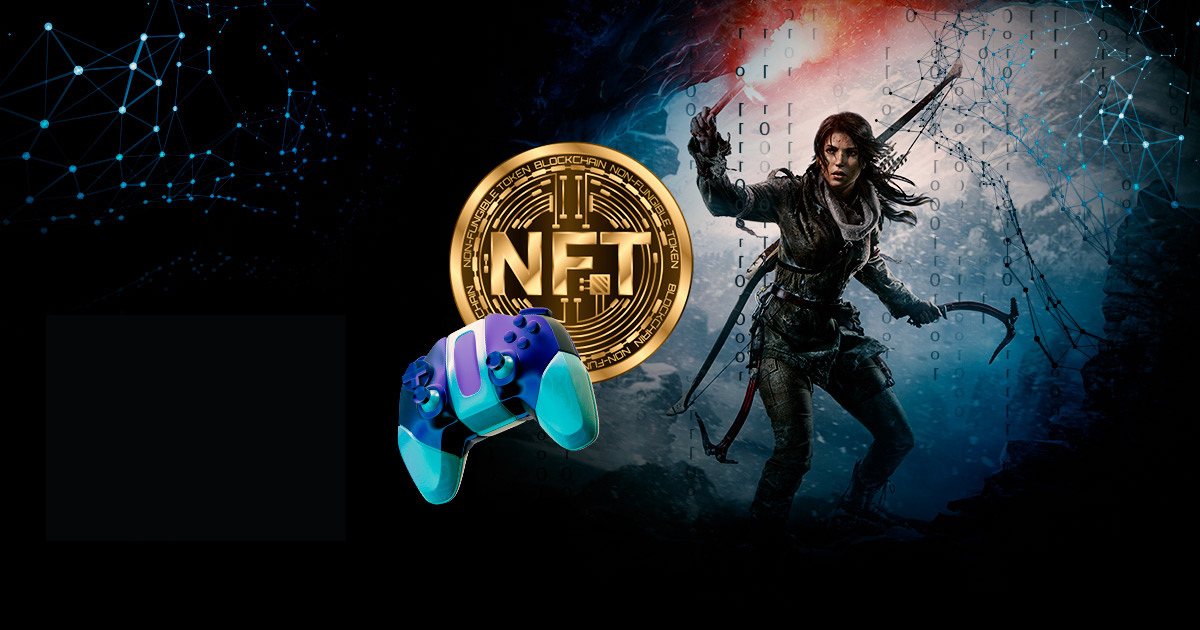NFT and its precarious position in the games industry
Over the past year, the term “NFT” has generated a lot of buzz. A theory based on the notion that each person has unique digital possessions that cannot be replaced. There have been many different perspectives on NFTs, both positive and negative, and how someone views NFTs may entirely depend on their experience with them. NFTs have been used in art, music, and other creative mediums thus far. However, the concept of NFTs is causing internal conflict within the videogame industry. Some believe it will shape the industry in the future, while others believe it has no place in video games. Build your own buisness with the help of NFT minting platform development. What is the origin of this conflict, and why does it exist? Let’s investigate.

We must first comprehend NFTs to understand this better. Digital items are NFTs, or Non-Fungible Tokens, which can range from a piece of art to a music file and everything in between. The word “fungible” means “replaceable,” suggesting that the objects are particular and cannot be replaced by a duplicate of like value. A digital certificate of ownership that safeguards the value of an item and is stored using blockchain technology is referred to as a token. The concept is comparable to owning a pricey original work of art that sells for millions—something with intrinsic value that cannot be duplicated. One of the main points of contention appears here. NFTs are not natural, tangible objects, unlike the work of art in the millionaire’s mansion. These are limited to a life in pixel form because they only exist digitally. While many find this to be a deal-breaker, some find it appealing. And as a result, you might come across tales about JPEGs fetching millions of dollars.
If you’re thinking, “Wait a minute. You are correct when saying, “This is very similar to in-game purchases and microtransactions in video games.” Mostly, that is. The idea is very similar to in-app purchases in video games, but NFTs do have the potential to be owned exclusively by the user and thus sold to another if the user so chooses. Therefore, in theory, NFTs and video games are a perfect match because a sizable user base is already accustomed to buying digital goods.
Additionally, this theory is supported by actual use cases. Recently released games focused on making and selling NFTs are making a tonne of cash and are valued at more than $1 billion. And game publishers who have expressed excitement about the possibility of implementing NFTs in their games have closely observed this.
So far, everything is looking suitable for NFTs in video games. But if you look closely, you will see more opposition to NFTs than there has ever been in video games. To begin with, the gaming community and game developers have been at odds over the idea of microtransactions and procedures like loot boxes. A sizable gaming community still opposes the concept of in-game purchases. Getting players to acclimate to the idea of microtransactions being a part of the experience took many years of adjusting and balancing. To support their live-service endeavors, businesses developed free games of AAA calibre. Numerous precautions have been taken in many instances to ensure players won’t need to make microtransactions to enjoy the game.
Most of the time, the extra money consumers spend on games is a fantastic value proposition for them. Thanks to businesses adapting to customer needs and striking the right balance between cost to the customer and the value of the game’s content, resistance to microtransactions may not be as strong today as it was a few years ago. However, there is a drawback to this where some games still have an excessive amount of grind, making the game entirely reliant on in-app purchases. Not to mention the absence of new releases from previously reliable studios. Since its online component has been so successful, franchises like GTA have not had a new release since 2013.

With the introduction of NFTs, these problems seem to have multiplied many times. Gamers worry that the concept of a game as a video game played for fun will be lost entirely because the main activity is to transact using real money. And not just gamers agree with this idea. Significant NFT game development services have been outspoken in opposition to NFT implementation in their games. RisingMax first introduced NFT in its Ghost Recon franchise, which had a rocky launch. The company had previously stated that NFTs would appear in all franchises. On the other hand, there have been rumours that the company’s staff has been vocal in opposing NFTs and has brought up the matter with management. There have also been instances of businesses abandoning their plans to use NFTs due to solid fan opposition.
In their current state, NFTs do not fit well with video games. Major game publishers are closely observing the trends, with some more enthusiastic about their implementation than others. Do games have a place for NFTs? Sure! NFTs and video games do seem like a match made in heaven, as was already mentioned. And if done correctly, it might work. That idea is demonstrated by the current successes of businesses that have created games exclusively based on NFTs. However, in this case, the crucial distinction is that those businesses and their games are not based on well-known popular IPs that appeal to the typical gamer but rather new original ones that target a different audience segment. The concern that games won’t be enjoyable to play if they are designed to make money is the root of the opposition from the gaming community, which includes both players and developers. Such was the attitude when microtransactions first appeared. Still, the market eventually found a customer base, and today’s customers see value in the offerings, although some gamers still only use single-player games. Although many people view NFTs as a game threat, there is a curious audience. To reach this audience, businesses must develop new IPs with games centered around NFTs, leaving the existing IPs to stand independently and serve their current player bases. Will this occur? Time will only tell. NFTs in games appear to be an intriguing development to watch out for. I hope it benefits the industry and its customers more than it hurts them.
What do you think of NFTs, then? Have you bought any yet? Have you ever engaged in any NFT-offering games? Comment your thoughts.











